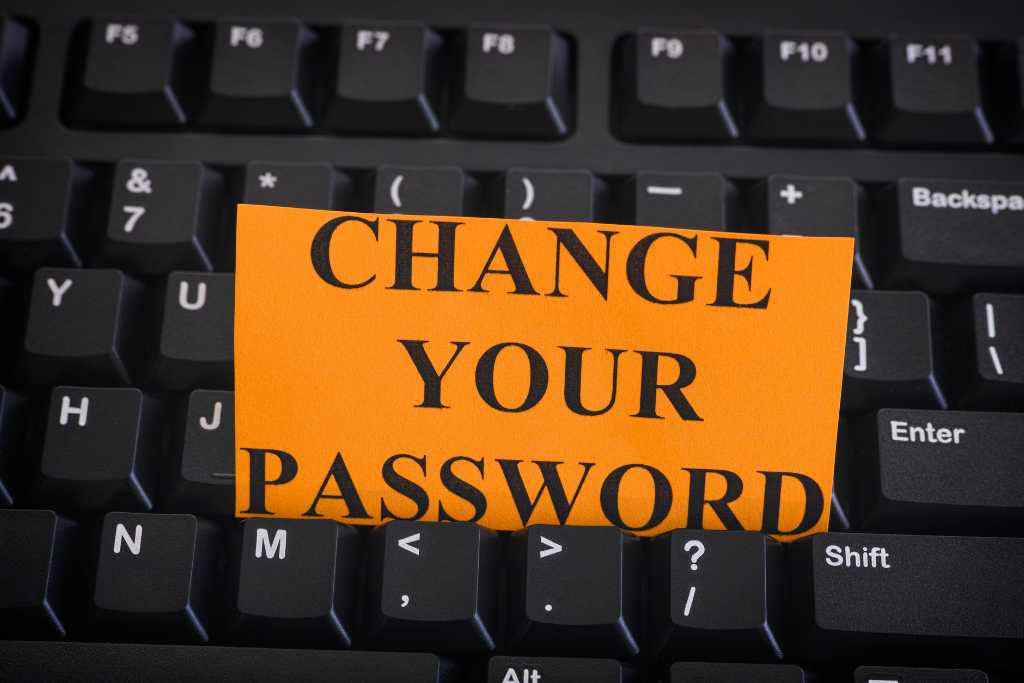If a hacker gets into your device, respond immediately. Keep calm to stop the hacker. Panicking could lead to bad decisions. Next, disconnect your device from the internet to prevent the hacker from doing more damage. After disconnecting, search your device for hacker-installed malware and strange apps. Use excellent antivirus software. To prevent the hacker from accessing email, online banking, and social media accounts, change all passwords immediately. Finally, seek professional cybersecurity assistance to analyze your device for any remaining traces of a hack and provide guidance on securing your digital presence moving forward. Their expertise can help salvage personal data and peace of mind during these troubling times.
Change Your Password
With so much of our personal information in the palm of our hands, it’s crucial to protect our devices from hackers. To do this, change your password and clear your cache to help remove malware traces from your device.

You should also clear your browser history and update any apps that you’ve downloaded from the app store (or elsewhere). Look for apps that give hackers remote access to your device (such as mirroring, TeamViewer, AnyDesk, or RemotePC) and delete them.
If you suspect your phone is hacked, you can also factory reset it to get rid of any files or apps that could be infected with malware. In addition, change your passwords for any accounts that were involved in a data breach. For even better protection, download an all-in-one cybersecurity solution that protects against viruses, malware, identity theft, and more.
Reset Your Device
Whether it’s through a massive data breach or simply a shady app, getting hacked is no fun. It can lead to identity theft, loss of privacy, compromised bank accounts, and more.

Fortunately, there are some signs that can help you know if your device is being hacked. For example, if your device has been acting strangely, or if it has recently increased its data usage, this could be a sign that malware is running on your device.
If this happens, you may want to factory reset your phone or tablet to remove any unfamiliar elements. However, this will wipe out all of your data, so it’s best to use it as a last resort.
Restore from a Backup
Whether it’s checking email, reviewing documents, taking photos, or banking, mobile devices put all of our personal information in the palm of our hands. And when hackers gain access, it’s scary and intimidating.

Mysterious apps that you didn’t download, sudden spikes in data usage you can’t explain, and even calls or texts from strangers can all be signs of hacking. But if you know how to spot them and quickly act, you can remove hacker access.
One of the most effective ways to do this is by restoring from a backup. Backing up your device can help you save all of the important data you have on it, including things like music, photos, and contacts. To learn how to create a backup, click here for a step-by-step guide.
Reinstall Apps
There is one method that is considered the “nuclear” option and it is guaranteed to stop hacks on your phone. It is a little more involved than a factory reset but it works for all phones and all kinds of hacks.
Look for apps on your phone that you don’t recognize or remember installing. These are likely hacking tools and should be deleted immediately.

Also, be aware that some spy apps require your device to be “Rooted”. Changing your phone software or performing a full reset will remove Root access and prevent these types of programs from working. This is especially important for Android users. If you notice that your phone is slowing down, this may be a sign of malware. This can be removed by a good antivirus program such as Certo Antispy.
Perform a Full Reset
If your phone has been hacked, factory resetting it will remove anything that the hacker installed to gain access. This will wipe everything, including data you’ve synced with iCloud or computer backups. It’s a last resort, but it can be useful for clearing malware that persists on your device.

If you notice mysterious apps, unexpected data usage spikes, or calls in your call log that you didn’t make, this could be a sign of a hacker. You should also check your credit card statements to make sure you didn’t make any unauthorized purchases.
Dany is an editor at EaseUS that focuses on writing articles related to data recovery on Apple devices and PCs. She is devoted to improving her writing skills and enriching her professional knowledge.